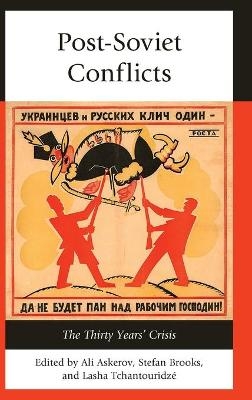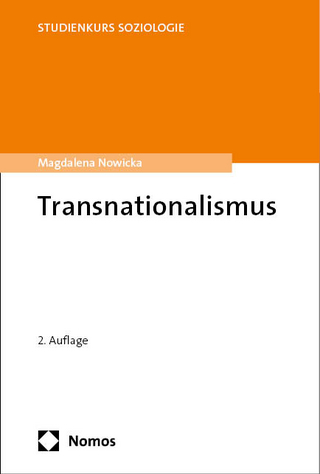
Post-Soviet Conflicts
Lexington Books (Verlag)
978-1-4985-9654-1 (ISBN)
In the 30 years since the emergence of the post-Soviet conflicts things have both changed and remained the same – continuities and changes in post-Soviet conflicts are the primary themes of this volume – it addresses all major wars, civil wars, and rebellions in the former Soviet Union. The volume focuses on factors that have contributed or may contribute to the resolution of the post-Soviet conflicts, most of which have represented rather long and damaging crises. In all conflict cases Moscow has been guided by Russian state interests – some have been instigated or fueled, others driven to a frozen state, and still a couple of others have been constructively resolved due to Moscow’s intervention. Russia has used a long-term strategy for the resolution of those conflicts that have taken place on its soil, but in regards to the conflicts in other post-Soviet states, there is no long-term solution in sight. As such, the conflicts in Ukraine, Georgia, Moldova, and Nagorniy Karabakh, remain unresolved involving not only the named states, but Russia as well. They may represent localized national or regional crisis impacting only the states involved, but for the Russian Federation they epitomize one huge post-Soviet crisis with no obvious end.
Ali Askerov is associate professor in the department of peace and conflict studies at the University of North Carolina-Greensboro. Stefan Brooks is associate professor of Homeland Security at Rabdan Academy. Lasha Tchantouridzé is professor of diplomacy and international relations at Norwich University – Military College of Vermont.
The Post-Soviet Crisis
Ali Askerov, Stefan Brooks, and Lasha Tchantouridzé
Chapter One
The Rise of Putin’s Russia and the post-Soviet Conflicts
Stefan Brooks
Chapter Two
Georgia’s Changing Strategic Situation
S. Neil MacFarlane
Chapter Three
The Nagorno Karabakh Conflict: The Beginning of the Soviet End
Ali Askerov
Chapter Four
Legitimacy and Force In The Conflict Over South Ossetia
Lasha Tchantouridzé
Chapter Five
The Conflict Over Abkhazia: Mutually Exclusive National Projects and Fragmented Statehood
David Matsaberidze
Chapter Six
Ajara: A Case in Conflict Avoidance
Zurab Tchiaberashvili
Chapter Seven
Chechnya: Interrupted Independence
Ali Askerov & Mairbek Vatchagaev
Chapter Eight
Dagestan: A Silent War
Robert Bruce Ware
Chapter Nine
Long-term Effects of Wartime Violence in Tajikistan
Malte Müller and Sam Whitt
Chapter Ten
Communal Violence in Kyrgyzstan
Joldon Kutmanaliev
Chapter Eleven
Caspian Sea Dispute
Musa Qasımlı
Chapter Twelve
Tatarstan: A Model of Peaceful Relations or Potential Spot of Conflict
Sait Ocakli
Chapter Thirteen
Moldova’s Breakaway Transnistria: The Origins, Nature and Current Dynamics
Kamala Valiyeva
Chapter Fourteen
Ukraine Between ‘The Russian World’ and the Black Sea
Lasha Tchantouridzé
Chapter Fifteen
Occupied Territory, Interrupted Dreams, And Shattered Hopes: A Trilogy of Traumas of the Crimean Tatar People
Idil P. Izmirli
| Erscheinungsdatum | 10.05.2021 |
|---|---|
| Co-Autor | Ali Askerov, Stefan Brooks |
| Verlagsort | Lanham, MD |
| Sprache | englisch |
| Maße | 161 x 228 mm |
| Gewicht | 776 g |
| Themenwelt | Sozialwissenschaften ► Politik / Verwaltung ► Europäische / Internationale Politik |
| Sozialwissenschaften ► Soziologie ► Spezielle Soziologien | |
| ISBN-10 | 1-4985-9654-1 / 1498596541 |
| ISBN-13 | 978-1-4985-9654-1 / 9781498596541 |
| Zustand | Neuware |
| Haben Sie eine Frage zum Produkt? |
aus dem Bereich


